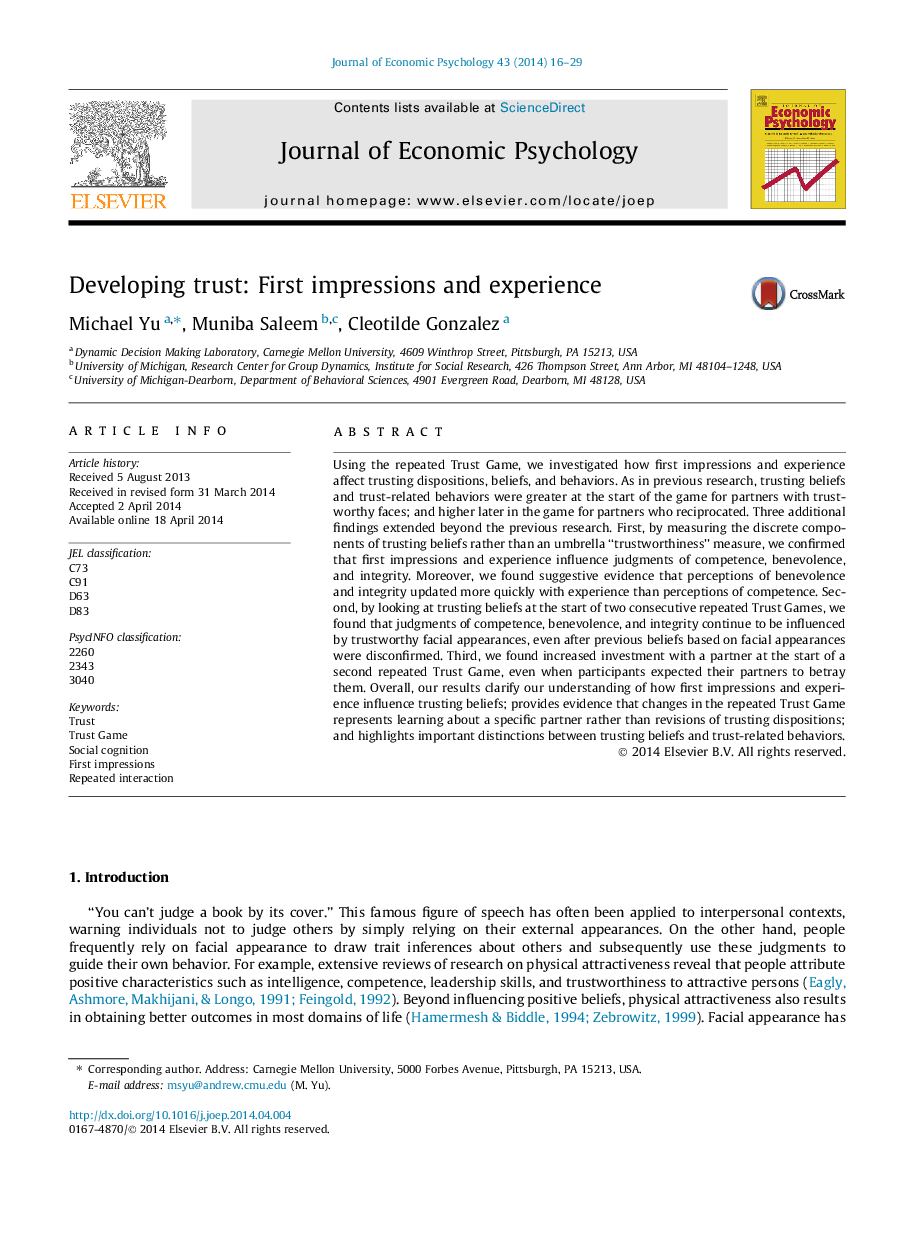| Article ID | Journal | Published Year | Pages | File Type |
|---|---|---|---|---|
| 884948 | Journal of Economic Psychology | 2014 | 14 Pages |
•We study how first impressions and experience affect different components of trust.•Trusting beliefs are established by first impressions and revised with experience.•Previous experiences do not affect first impressions of new partners.•Previous experiences can influence trusting behavior with new partners.•Different dimensions of trust change differently with experience.
Using the repeated Trust Game, we investigated how first impressions and experience affect trusting dispositions, beliefs, and behaviors. As in previous research, trusting beliefs and trust-related behaviors were greater at the start of the game for partners with trustworthy faces; and higher later in the game for partners who reciprocated. Three additional findings extended beyond the previous research. First, by measuring the discrete components of trusting beliefs rather than an umbrella “trustworthiness” measure, we confirmed that first impressions and experience influence judgments of competence, benevolence, and integrity. Moreover, we found suggestive evidence that perceptions of benevolence and integrity updated more quickly with experience than perceptions of competence. Second, by looking at trusting beliefs at the start of two consecutive repeated Trust Games, we found that judgments of competence, benevolence, and integrity continue to be influenced by trustworthy facial appearances, even after previous beliefs based on facial appearances were disconfirmed. Third, we found increased investment with a partner at the start of a second repeated Trust Game, even when participants expected their partners to betray them. Overall, our results clarify our understanding of how first impressions and experience influence trusting beliefs; provides evidence that changes in the repeated Trust Game represents learning about a specific partner rather than revisions of trusting dispositions; and highlights important distinctions between trusting beliefs and trust-related behaviors.
